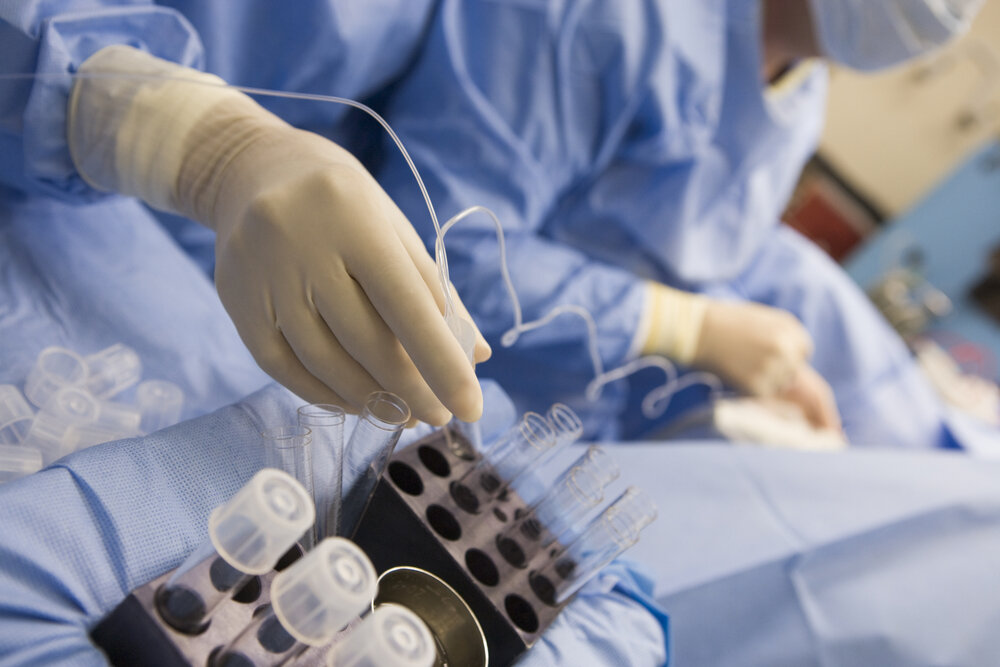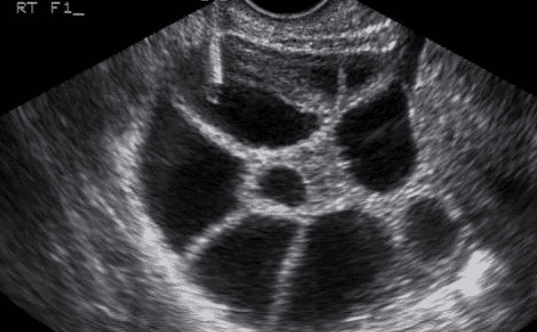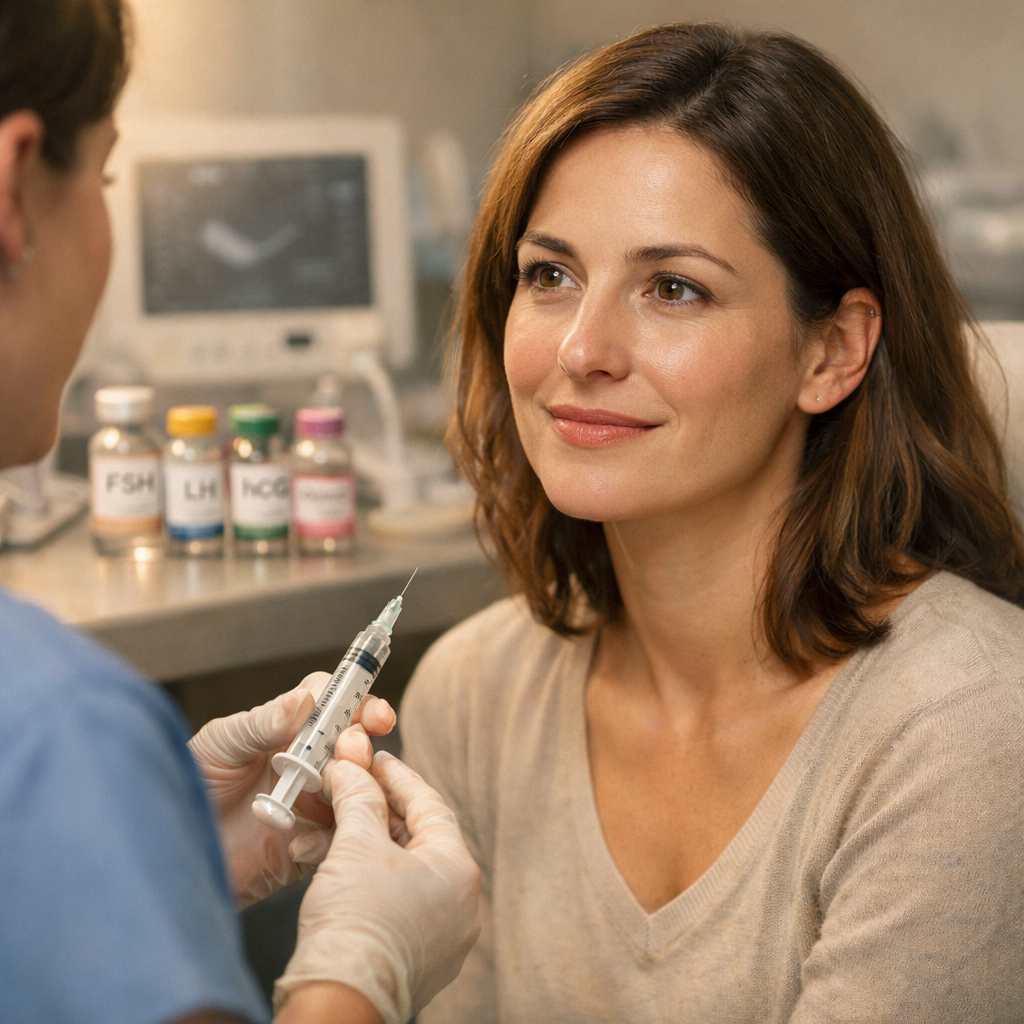
Egg retrieval is a vital part of in-vitro fertilization (IVF), involving the collection of mature eggs from the ovaries. This step is crucial in the IVF egg retrieval process as it lays the foundation for fertilization and embryo development. Let’s delve into the process of IVF egg retrieval, exploring its steps, importance, and what you can expect.
What is IVF Egg Retrieval?
The egg retrieval process refers to a minimally invasive procedure where eggs are carefully collected from a woman’s ovaries. This procedure is also called egg collection, and it’s a pivotal step in IVF treatment. During IVF and egg retrieval, the collected eggs are fertilized with sperm in a lab to create embryos.
This procedure is also critical for those considering egg freezing, where eggs are preserved for future use.
Why is Egg Retrieval Important in IVF Treatment?
The egg retrieval ivf procedure is integral to fertility treatments, as it allows doctors to collect multiple eggs in one cycle. This increases the chances of successful fertilization and ensures that embryos with the best potential are created. Without in vitro fertilization egg retrieval, the success of IVF treatments would be limited.
 How Do They Do IVF Egg Retrieval?
How Do They Do IVF Egg Retrieval?
If you’re wondering, “how do they do IVF egg retrieval?” here’s an overview of the process:
Steps of the Procedure
- Preparation and Anesthesia
The patient is given sedation or anesthesia to ensure comfort during the egg collection procedure. - Egg Collection Surgery
During the egg collection ıvf process, a thin needle is guided via ultrasound through the vaginal wall into the ovarian follicles. Follicular fluid is aspirated, and the eggs are retrieved. - Assessment and Storage
Once collected, the eggs are examined for quality and maturity in the lab. They are then either fertilized immediately or frozen, depending on the patient’s treatment plan.
How Long Does Egg Collection Take?
A common question is, “how long does egg collection take?” The egg collection surgery itself takes about 20–30 minutes. Including preparation and recovery, the entire visit may take a few hours.
What to Expect Before the Egg Retrieval Process?
The process of how do they collect eggs for IVF involves using ultrasound-guided needles to retrieve eggs from the follicles during the IVF egg collection procedure. Proper preparation is key to a successful IVF egg collection process. Here’s what to expect:
Preparations for Egg Retrieval
Preparing for the egg retrieval process is a critical phase in in-vitro fertilization (IVF) that can significantly impact the success of the procedure. Proper preparation involves following a carefully outlined plan provided by your fertility specialist. This ensures the development of healthy eggs and minimizes potential complications. Here’s a detailed look at what you can expect and how to prepare effectively:
To optimize the number of eggs, patients undergo hormonal stimulation using medications like gonadotropins. This step ensures the ovaries produce multiple mature eggs for egg collecting. Doctors monitor the growth of ovarian follicles with ultrasounds and blood tests, ensuring the right timing for the egg collection procedure IVF.
Important Tips to Follow Before the Procedure
Preparing for the egg retrieval process is not only about undergoing hormonal stimulation and monitoring—it’s also about adopting lifestyle adjustments, following medical advice, and maintaining a healthy mindset. These important tips can help ensure that you are physically and emotionally ready for the procedure, increasing the likelihood of a successful outcome.A healthy lifestyle is essential. Avoid alcohol, caffeine, and smoking, and focus on a balanced diet to support ovarian health during the IVF egg retrieval process.Follow your doctor’s instructions for fertility medications precisely. Incorrect usage can affect the outcome of the process of IVF egg retrieval.
Post-Procedure Care After Egg Retrieval
After egg retrieval during ivf, it’s essential to follow a post-care routine for recovery.
Recovery After the Procedure
After the egg retrieval process, your body needs time to recover and adjust. While the procedure is minimally invasive and typically well-tolerated, you may experience mild symptoms and require a short recovery period to feel fully normal again. Following post-procedure care instructions can help ensure a smooth recovery and reduce the risk of complications.
It’s normal to experience mild cramping, bloating, or spotting after the procedure. These symptoms can be managed with pain relievers and rest.Patients can typically resume light activities within 24–48 hours. Strenuous physical exertion should be avoided until advised by your doctor.
What to Avoid After Egg Retrieval?
After the egg retrieval process, it’s crucial to take care of your body and avoid certain activities, foods, and habits that could interfere with your recovery or affect the success of your IVF treatment in Cyprus. Following your doctor’s recommendations on what to avoid will help reduce the risk of complications and ensure a smooth recovery. Many patients wonder, “is egg collection painful?” While the procedure itself is painless due to sedation, some discomfort or cramping may occur afterward.
Physical activity needs to be carefully managed after the IVF egg collection process to prevent unnecessary strain on your body, especially your ovaries, which remain swollen and sensitive after the procedure.
- Strenuous Exercise
- High-impact activities such as running, weightlifting, or intense workouts should be avoided for at least a week after the egg collection procedure IVF. These activities can increase the risk of ovarian torsion, a rare but serious condition where the ovary twists on itself.
- Replace strenuous exercise with light activities like walking to promote circulation without putting stress on the ovaries.
- Heavy Lifting
- Lifting heavy objects can increase abdominal pressure and cause discomfort or complications. Avoid lifting anything heavier than 10 pounds until your doctor clears you to resume normal activities.
- Sexual Activity
- Sexual intercourse should be avoided for at least a week or as advised by your doctor. The ovaries are enlarged, and engaging in sexual activity too soon can lead to pain or ovarian torsion. Additionally, there is a risk of unintended pregnancy if eggs were not successfully retrieved or fertilized.
Your diet and lifestyle choices can impact your recovery and the next steps in the IVF process. Avoiding specific foods and habits can help you heal faster and reduce discomfort after the egg retrieval surgery.
- Unhealthy Foods
- Processed Foods: These often contain high levels of sodium, sugar, and unhealthy fats, which can exacerbate bloating and inflammation.
- Salty Foods: Excess sodium can worsen post-procedure bloating, a common symptom after the IVF egg retrieval process.
- Gas-Producing Foods: Foods like beans, cabbage, and carbonated drinks can increase abdominal discomfort and bloating.
- Alcohol and Caffeine
- Avoid alcohol entirely after the egg collection process, as it can interfere with hormone levels and hydration.
- Limit or eliminate caffeine consumption, as excessive amounts can negatively impact fertility and your body’s ability to heal.
- Dehydration
- Staying hydrated is essential for recovery, but sugary or caffeinated drinks should be avoided, as they can dehydrate you. Stick to water, herbal teas, or electrolyte-rich beverages to maintain hydration.
Conclusion
The egg retrieval process is a critical step in achieving success with IVF. Whether you’re undergoing IVF and egg retrieval or exploring options like egg freezing, understanding each stage of the procedure can help ease concerns and ensure the best possible outcomes.
With proper preparation, expert care, and the right post-procedure recovery steps, the IVF egg retrieval process can significantly improve your chances of building the family you’ve always dreamed of.
For those exploring fertility treatments, consider consulting a trusted Cyprus IVF clinic. These clinics specialize in personalized fertility care, ensuring a seamless and comfortable experience throughout the IVF egg collection process.



 How Do They Do IVF Egg Retrieval?
How Do They Do IVF Egg Retrieval?

